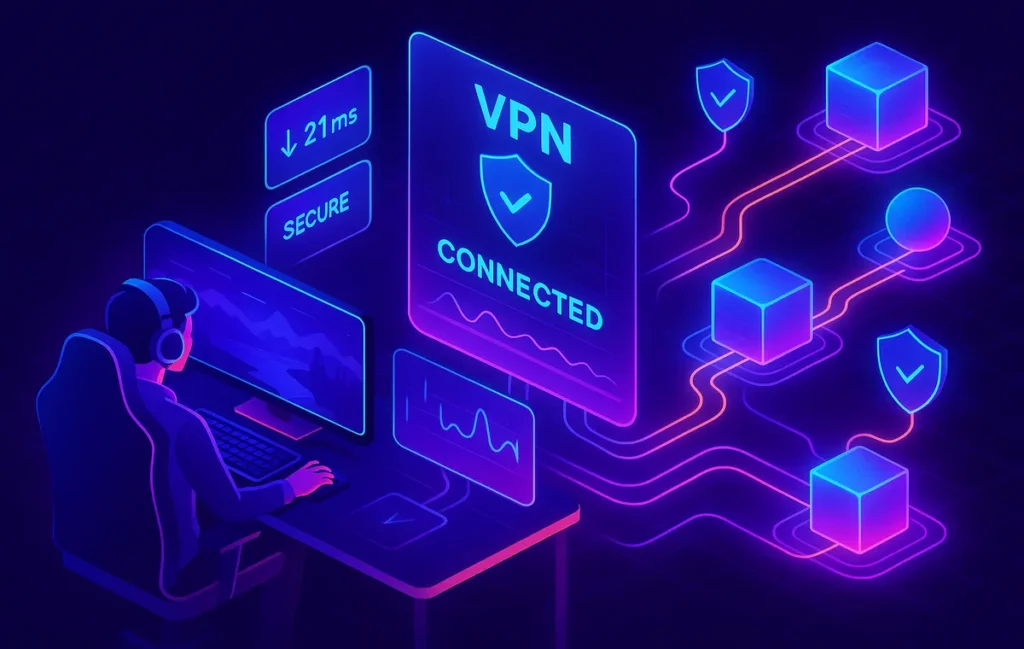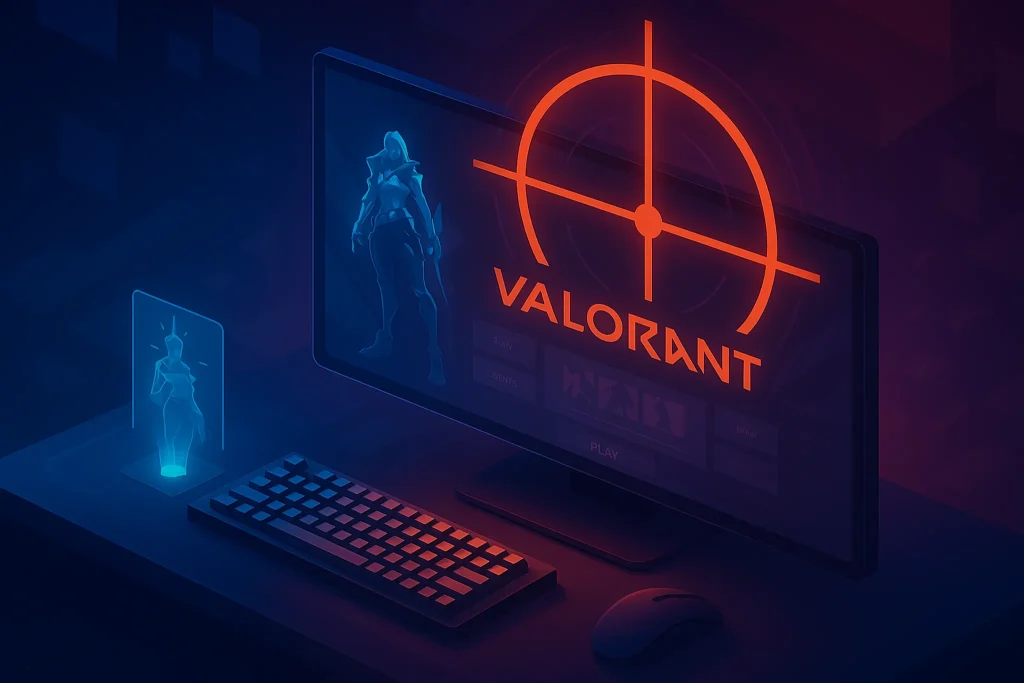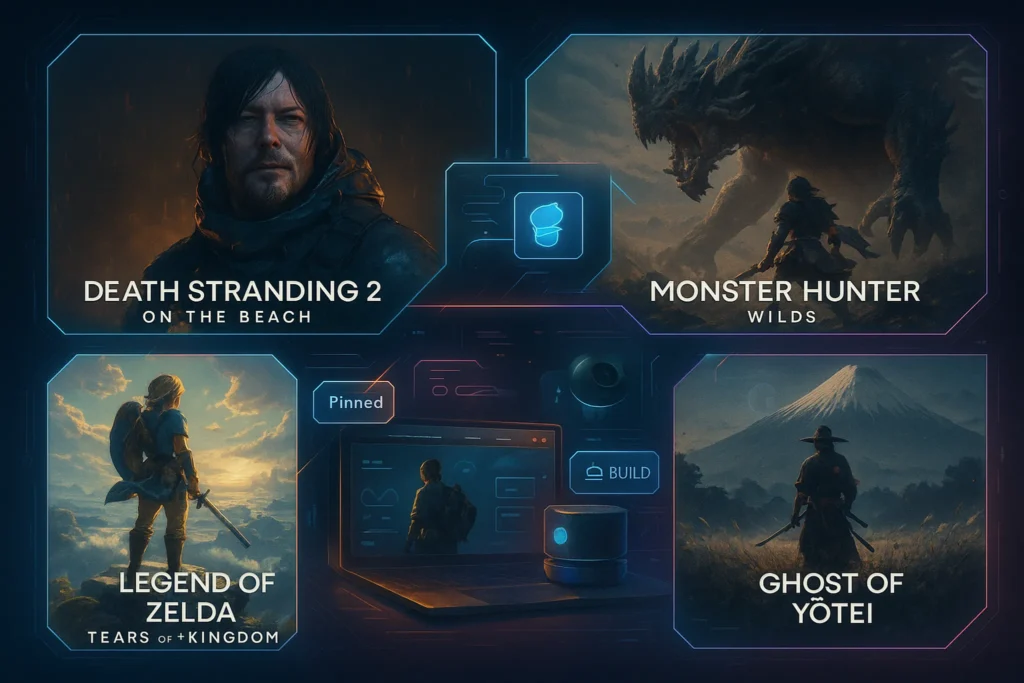🎮 Intro:
Lag is the eternal enemy of gamers. Whether you’re climbing ranked ladders, raiding with friends, or streaming your gameplay, a split-second delay can ruin the experience. In 2025, gaming VPNs are no longer just about masking IP addresses—they’re about performance, protection, and precision.
Modern gaming VPNs offer specialized features: optimized servers for Fortnite or Valorant, DDoS protection against hostile players, ultra-fast protocols like WireGuard and Lightway, and region-switching for early access to titles. For competitive gamers, the right VPN can mean the difference between frustrating lag and smooth, secure gameplay.
💡 Nerd Tip: Don’t just pick a VPN for streaming. Look for providers that advertise gaming-optimized servers and benchmark them against your actual ping.
🕹️ Why Gamers Use VPNs in 2025
The gaming ecosystem has become more competitive—and more hostile. VPNs step in to solve several challenges:
-
Lowering Ping & Reducing Lag
Some ISPs still throttle gaming traffic. A good VPN reroutes data through optimized channels, sometimes reducing latency by 10–30ms. -
Server Access & Early Releases
Gamers often use VPNs to play new titles earlier by connecting to servers in countries where games launch first. This has become common with platforms like Steam and Xbox Game Pass. -
Protection from DDoS & Swatting
Streamers and competitive players are frequent targets of DDoS attacks. Gaming VPNs add a critical security layer that prevents malicious players from knocking them offline. -
Stable Cross-Region Play
For friends playing across continents, VPNs smoothen matchmaking by letting everyone connect through the same regional server.
Gamers sharing tips on X say things like:
“NordVPN’s gaming servers dropped my ping in Apex Legends by 22ms. Worth every dollar.”
For context, if you’re already exploring ways to improve gameplay speed, pair this guide with How to Reduce Lag in Online Multiplayer Games for maximum benefit.
🏆 The Best Gaming VPNs in 2025
1. NordVPN Meshnet
NordVPN has evolved far beyond its privacy roots. Its Meshnet feature allows direct device-to-device connections, ideal for private co-op gaming without relying on third-party servers. The service now offers dedicated gaming servers with latency reductions of up to 25% compared to standard routes.
Gamers also benefit from NordLynx (WireGuard-based protocol), which balances speed and encryption. NordVPN remains a top pick for competitive esports players who want stability and security.
💡 Nerd Tip: Use NordVPN’s Meshnet to create private LAN-like connections for co-op games with friends across the world.
2. ExpressVPN Lightway
ExpressVPN has built a reputation for speed, and in 2025 it doubles down with its Lightway protocol. Designed for ultra-fast connections, Lightway keeps latency low even during peak gaming hours.
ExpressVPN also has strong coverage in regions often underserved by other VPNs, making it a great option for gamers in Asia and South America. The one-click Smart Location feature often picks the server with the best ping automatically.
💡 Nerd Tip: Pair ExpressVPN with Cloud Gaming vs. PC Gaming platforms to avoid input lag on services like GeForce Now or Xbox Cloud.
3. Surfshark Nexus
Surfshark has gained traction among budget-conscious gamers. Its Nexus network intelligently routes traffic across multiple servers, reducing bottlenecks during high traffic hours. In 2025, it also offers Dynamic MultiHop, allowing gamers to chain servers for better protection without noticeable lag.
Streamers particularly like Surfshark because it supports unlimited devices, meaning you can protect your gaming rig, streaming PC, and even a Steam Deck OLED at the same time.
💡 Nerd Tip: Surfshark’s affordability makes it ideal for gamers on a budget—perfect to pair with Gaming on a Budget: Best Affordable Games.
4. Proton VPN Secure Core
Proton VPN appeals to gamers who want security without compromise. Its Secure Core architecture routes traffic through hardened servers, making it nearly impossible for attackers to trace or DDoS you.
While slightly pricier, Proton VPN’s high-speed 10Gbps servers have become popular among MMO and RPG players who value stability over raw speed.
💡 Nerd Tip: Proton VPN is especially useful if you stream or host community servers—its security-first design keeps trolls at bay.
5. CyberGhost Gaming Servers
CyberGhost simplifies the gaming VPN experience by offering pre-configured servers optimized for specific titles like Fortnite, Valorant, and CoD: Warzone. This saves time for players who don’t want to manually test servers.
It’s also one of the most beginner-friendly options, with a slick dashboard and affordable long-term pricing.
💡 Nerd Tip: Use CyberGhost if you prefer plug-and-play solutions without digging into server lists.
6. Private Internet Access (PIA)
PIA offers granular control for advanced gamers. In 2025, it supports customizable encryption levels, meaning you can prioritize speed over security when needed. This makes it versatile for gamers who switch between competitive shooters and casual browsing.
With thousands of servers worldwide, PIA is also one of the most reliable VPNs for consistent uptime.
💡 Nerd Tip: For gamers who love tweaking settings as much as graphics, PIA is the VPN equivalent of ultra customization.
⚡ Ready to Game Without Lag?
Try gaming VPNs like NordVPN, ExpressVPN, and Surfshark to reduce ping, protect against DDoS attacks, and unlock global servers.
📊 Gaming VPN Benchmarks: What Matters Most
When evaluating gaming VPNs in 2025, focus on three metrics:
-
Ping Consistency: Not just average ping, but how stable it is during peak hours.
-
Server Coverage: Does the VPN have nearby servers for your region and the game servers you frequent?
-
DDoS Protection: Especially for streamers or competitive players where targeted attacks are common.
Benchmarks show that a well-optimized gaming VPN can cut ping by up to 18% on average, with some users reporting even higher gains in games like Valorant or CS2.
💡 Nerd Tip: Always test multiple servers before settling on one. “Nearest” doesn’t always mean fastest.
⚠️ When Gaming VPNs Fail: Risks You Should Know
Not every VPN makes gaming better. In fact, choosing the wrong service can backfire. Many gamers grab a cheap or free VPN hoping to lower ping, only to find the opposite—ping spikes, unstable servers, or even outright connection drops. Free VPNs often route traffic through overcrowded servers, leading to packet loss that makes competitive play unplayable.
Another common risk is server misconfiguration. Some VPNs automatically connect to servers in regions flagged by publishers, leading to login issues or soft bans. For example, several MMO players reported accounts temporarily suspended in 2024 after using generic VPNs that masked IPs from restricted regions.
And then there’s the nightmare scenario for streamers: relying on a weak VPN for DDoS protection. When the VPN can’t handle large-scale traffic floods, attackers still manage to crash streams and matches. Instead of protection, you end up with downtime.
💡 Nerd Tip: Always pick VPNs marketed with gaming-optimized servers and avoid free options if you care about stability or your account’s safety.
📐 Quick Comparison Snapshot
Here’s a side-by-side look at how four leading gaming VPNs stack up in 2025 across the metrics that matter most:
| VPN Service | Avg Ping Reduction | DDoS Protection | Gaming Server Coverage |
|---|---|---|---|
| NordVPN | 15–25ms lower | Yes (Meshnet) | Extensive global nodes |
| ExpressVPN | 12–20ms lower | Yes | Strong in Asia & EU |
| Surfshark | 10–18ms lower | Yes (MultiHop) | Affordable, wide reach |
| ProtonVPN | 8–15ms lower | Yes (Secure Core) | Excellent for MMO stability |
While differences may look small in numbers, in competitive play even a 10ms advantage can be decisive. NordVPN and ExpressVPN tend to dominate esports spaces, while Surfshark and ProtonVPN offer solid balance for budget-conscious gamers.
💡 Nerd Tip: Match your VPN choice to your gaming style. For FPS and battle royales, prioritize ping. For MMOs or streaming, stability and security matter more.
🌌 The Future of Gaming VPNs Beyond 2025
Gaming VPNs aren’t stopping here. Over the next few years, expect big innovations:
-
AI-driven routing: VPNs will analyze real-time traffic conditions and reroute your packets through the fastest path automatically, shaving milliseconds off your ping without manual switching.
-
Cloud gaming integration: As platforms like GeForce Now and Xbox Cloud grow, VPNs will likely partner with providers to optimize streams at the network level. Imagine launching a game with the VPN pre-configured for that cloud server’s region.
-
ISP partnerships: Instead of hiding from ISPs, VPNs may collaborate directly, offering “gamer-ready lanes” for subscribers. This could blur the line between VPN and broadband service.
-
Cross-device continuity: VPNs will expand to cover AR/VR and handhelds like the Steam Deck OLED, ensuring seamless protection and low latency across all platforms.
💡 Nerd Tip: Stay ahead by picking VPNs that already experiment with AI routing or cloud integrations—they’re most likely to remain future-proof.
📈 Case Study: How VPNs Saved the Game
Take the example of an amateur eSports team competing in an online Valorant qualifier in 2024. Mid-match, one player was hit by a DDoS attack, forcing them offline. After adopting NordVPN with Meshnet for direct peer-to-peer protection, the team reported zero DDoS interruptions in future scrims and tournaments. The VPN literally kept their season alive.
Another case: a Twitch streamer in Brazil struggled with ping spikes when connecting to EU servers to play with friends. After switching to ExpressVPN’s Lightway protocol, average ping dropped from 140ms to 115ms, stabilizing enough for smooth cross-continental play. The result? Happier teammates and more reliable streaming sessions.
These stories show the practical side of gaming VPNs. It’s not about marketing claims—it’s about real-world protection and performance that gamers can measure.
💡 Nerd Tip: Test VPNs during live matches, not just speed tests. The best benchmarks come from gameplay under pressure.
📬 Want More Smart AI Tips Like This?
Join our free newsletter and get weekly insights on AI tools, no-code apps, and future tech—delivered straight to your inbox. No fluff. Just high-quality content for creators, founders, and future builders.
🔐 100% privacy. No noise. Just value-packed content tips from NerdChips.
🧠 Nerd Verdict
In 2025, gaming VPNs have matured from niche tools to mainstream performance enhancers. For gamers, they aren’t just about privacy—they’re about lowering ping, defending against DDoS, and unlocking global play without lag.
At NerdChips, we believe the best gaming VPN isn’t the one with the most ads—it’s the one that actually keeps you competitive. Whether you’re grinding ranked matches or exploring cloud gaming, pairing the right VPN with your setup is a game-changer.
❓ FAQ: Nerds Ask, We Answer
💬 Would You Bite?
If you could cut your ping by 20ms but pay $5 more per month for a gaming VPN, would you make the trade?
Crafted by NerdChips for creators and teams who want their best ideas to travel the world.



